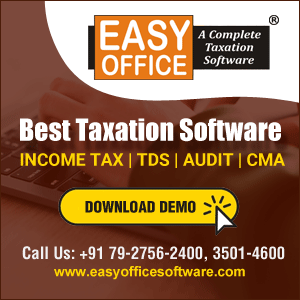In a significant ruling on Friday, May 17, the Supreme Court upheld the rule established by the Institute of Chartered Accountants of India (ICAI), which limits Chartered Accountants (CAs) to accepting no more than 60 tax audit assignments per financial year. This decision, made by a bench comprising Justices BV Nagarathna and Augustine George Masih, supports para 6.0 of Chapter VI of the Council Guidelines No. 1-CA(7)/02/2008 dated August 8, 2008, along with its subsequent amendments.

Judicial Findings and Implications
The bench determined that the rule does not violate the fundamental right to practice a profession as guaranteed under Article 19(1)(g) of the Constitution. Instead, it constitutes a reasonable restriction aimed at maintaining professional standards and ensuring the quality of audits.
Effective from April 1, 2024, the rule is designed to enhance the integrity and reliability of financial audits. Additionally, the Supreme Court quashed any disciplinary proceedings initiated against CAs for violating this clause prior to its official implementation. The bench noted, "We quash the disciplinary proceedings initiated against the petitioners on the basis of the doctrine of legal uncertainty."
Role and Recognition of ICAI
The Supreme Court commended ICAI for its pivotal role in upholding high accounting standards both domestically and internationally. The bench remarked, "ICAI has, over time, received recognition as a premier accounting body for maintaining the highest standards…the true test, however, lies in enforcement of these standards." The judgment underscores ICAI's responsibility to continue aligning its practices with international standards.
Historical Context and Legal Proceedings
The compulsory tax audit regime was introduced in 1984 through Section 44AB of the Income-tax Act, 1961. This section mandated that businesses exceeding a certain turnover threshold must have their accounts audited by a CA. The limitation on the number of tax audit assignments was first implemented in 1988 and later revised in the 2008 guidelines, which were the subject of the current legal challenge.
The Supreme Court's decision followed a series of conflicting judgments from various High Courts. In 2020, the Supreme Court consolidated these cases to provide a final ruling. The principal argument against the rule was that it infringed on the fundamental rights under Articles 19(1)(g) and 14. However, the Court affirmed the ICAI's authority to regulate the profession and impose reasonable restrictions.
Future Implications
The judgment reserves the ICAI's right to adjust the limit on tax audit assignments as necessary, reflecting the evolving needs of the profession and the market. This decision reinforces the regulatory framework governing the auditing profession in India, ensuring that CAs can maintain high standards without being overburdened.







 CAclubindia
CAclubindia

